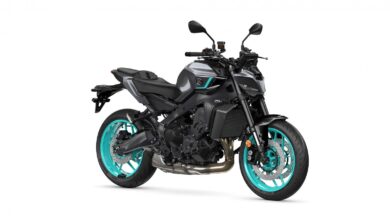Massachusetts two-stroke bill could be huge
A bill working its way through the Massachusetts legislature could halt the sale of two-stroke recreational vehicles, effective in June, 2004.
The bill, sponsored by Democratic Rep. J. James Marzilli Jr. is currently in the hands of the Natural Resources and Agriculture committee. The committee hosted a public hearing on the bill at the end of May, and will make its recommendation on the bill this fall.
“It would affect 90% of our business,” said Penny Smith, president of Smith Sled Shop in Huntington, Mass. Smith sells Bombardier, Polaris and Arctic Cat lines, as wells as lawn-maintenance equipment.
The bill, titled House No. 1909, calls for a ban on sales of recreational-related two-stroke engines. It includes engines in motorboats, personal watercraft, snowmobiles and off-road vehicle engines. Exclusions include vehicles used for agriculture, forestry, lumbering or construction. Also not included in the bill is lawn-maintenance equipment.
“This could set a horrible precedent,” said Shawn K. Sheehy, a lobbiest who represents the Massachusetts Motorcycle Business Association and the Massachusetts Personal Watercraft Association.
“This would have a significant impact on us,” said Dave Varacka, owner of Brockton Cycle Center in Brockton, Mass., sellers of motorcycles, ATVs and personal watercraft. “We also sell a lot of parts and accessories with two-stroke sales as well as do service on two-strokes.”
Marzilli has little sympathy for dealers. “They could sell four-stroke machines,” he said. “The public should not have to protect the sellers of these machines.”
“ATV-wise, a majority of our sales are in four-strokes,” Smith said. “But there just aren’t many options for snowmobiles. Two-strokes are lighter, cheaper and they’re nearly as environmentally friendly.”
Varacka also feels this ban would have a noticeable impact on sales tax revenues within the state, which is 5% on each sale. Just a quick estimate for his store alone lands his annual sales tax contribution at about $50,000. “It’s a significant amount of money, and then multiply it by every dealer in the state,” he said.
“This prohibits the sale, but it doesn’t prohibit the use,” Sheehy said. “All it’s doing is driving the business elsewhere.”
“I have no desire to take away the machines, just as we don’t ban more-polluting cars from the road,” Marzilli said. “I just want to make sure the continuing sales of these gross polluters has ended.”
A Pollution Solution?
This matter is of personal interest for Marzilli, who pointed out his concern for the already-polluted lakes and waterways in the state.
“The public waters are so damaged,” he said. “Two-stroke engines are a significant polluter, and it’s clear that the industry has alternatives.”
The idea of a cleaner-burning two-stroke doesn’t phase him. “Frankly, the problem with two-strokes is the core of their technology. It’s virtually inevitable that there will be some dripping of uncombusted fuel.”
“I don’t find waterways polluted in western Massachusetts, where I’m from,” Smith said. “The river is so clean you can drink the water from it. The Springfield river may be polluted, but there’s just not much PWC use there.
“We encountered more pollution in traffic going to Boston to the hearing than all snowmobile and watercraft emissions combined,” she added, “because it’s a parking lot.”
Wait And See
At this point, dealers such as Smith and Varacka are taking a wait-and-see approach with the bill.
This fall, the committee will make one of three recommendations for the bill: either it will be forwarded back to the legislature in its current or a revised format, or it won’t receive committee approval and die.
Sheehy is optimistic that it won’t make it out of the committee. “The bill is poorly drafted, not thoroughly thought out and not likely to pass,” he said.
Varacka takes a more cautious approach. “Every bill has a chance if it gets to a committee, and we’re going to take it seriously,” he said.
This is a time, Varacka said, for dealers and consumers to work together. He’s a member of the Massachusetts Motorcycle Business Association — which also represents snowmobile and personal watercraft dealers — and he posts information to his customers on a special bulletin board. He also encourages his customers to get involved with political issues.
Marzilli said he’s heard response from people in the motorsports industry and some users, as well as people who support the ban. But really, he said, overall response has been minimal.




